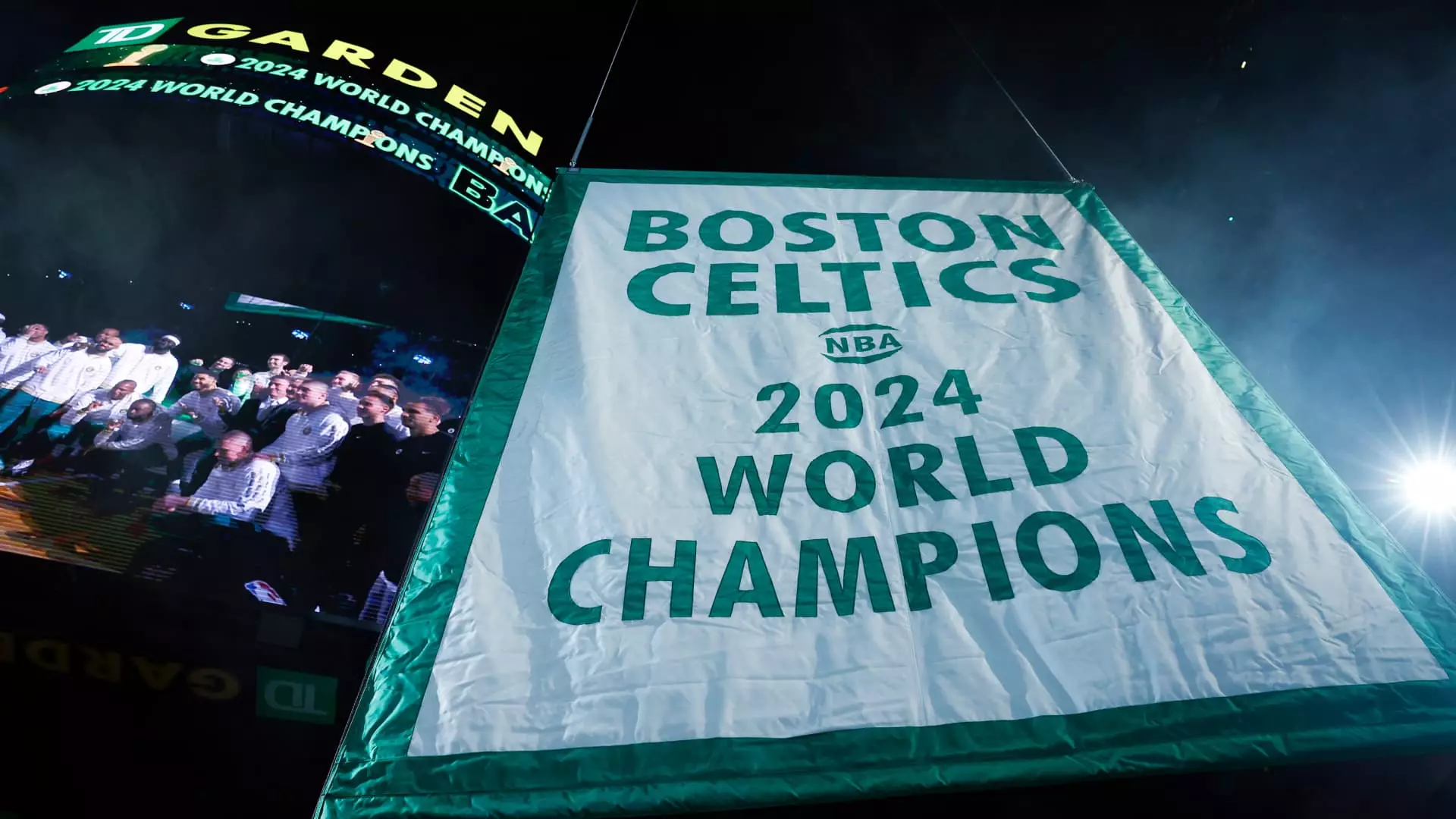The recent acquisition of the Boston Celtics, the reigning champions of the NBA, by a consortium led by private equity mogul Bill Chisholm, represents a defining moment not just in basketball, but in the broader landscape of sports ownership. This landmark deal, valued at a staggering $6.1 billion, is emblematic of the embracing of private equity in the sports world—an integration that raises questions about the future, culture, and community bond that sports teams should embody.
In what is now the highest sale price for a sports franchise in the United States, surpassing even the $6.05 billion for the Washington Commanders, the deal reflects an alarming upward trend. Such valuations can easily alienate individual buyers or families, paving the way for corporate entities, which may prioritize profit margins over the legacy of the franchise. As much as this move signifies business acumen, it simultaneously signals a danger for the rich traditions associated with sports teams.
Celtics’ Cultural Identity at Stake
Bill Chisholm, a self-proclaimed passionate Celtics fan, confidently declared his commitment to fulfilling the organization’s responsibility to the community of Boston. However, such assertions can feel hollow in the face of straightforward financial motivations. While he may hold sentimental ties to the franchise, the overarching influence of private equity firms often leans towards maximizing returns.
Traditionally, the Celtics have been more than mere players in a league; they have been an integral part of Boston’s cultural fabric. The ownership of a sports team should ideally entail a stewardship role, protecting not just vast assets but the emotional ties that fans have towards their team. The recent influx of outside capital begs the question: Will the Celtics remain a beacon of Boston pride, or will they morph into yet another revenue-generating machine for a conglomerate?
The Economics of Sports Valuation
The rapid rise in team valuations can largely be attributed to lucrative media rights deals. The NBA’s recent agreement worth $76 billion with major networks like Walt Disney and Amazon underscores how these dynamics are reshaping the economic landscape of sports. How does a team intended to unite a city morph into a multi-billion-dollar asset primarily appealing to investors?
Moreover, the unwillingness to taper off this insanity creates a vicious cycle where it becomes nearly impossible for local, dedicated fans to aspire to ownership. As more franchises endorse this model, we lose the ability to foster genuine connections between ownership and community. The fraternity of being part of an ownership group shifts into a realm of privilege devoid of connection.
The Broader Implications for Professional Sports
The deal not only molds a new chapter for the Celtics but also sets a worrying precedent for other franchises across all major sports leagues. As teams become more corporate and profit-driven, there is a palpable risk of disenfranchising loyal fan bases who view their teams as extensions of their identity. This commodification detaches sports from its intrinsic value—a sense of belonging, an emotional sanctuary, a collective experience.
While it may seem refreshing to see dynamic individuals like Chisholm in positions of influence, the broader implications of private equity stakes in sports teams remain perilous. As these entities gather power, there’s a lingering concern that the spirit of the sport—rooted in competition, community, and shared triumphs—will be eclipsed by a relentless chase for financial returns.
A Fork in the Road
As we stand at this crossroads, it is imperative to remain vigilant and critical of these changes. The deal could either signify the start of a transformational chapter for the Celtics, potentially blending local passion with financial prowess, or it could exemplify a grim future in which sports are wholly entrenched in cash flows rather than cultural vitality. The stakes are impossibly high, and the implications constantly unfold with each game played, every dollar invested, and every chant surfacing from the stands of the TD Garden.
Privatized ownership can provide incredible opportunities, but community investment should never be sacrificed on the altar of profit. As we continue to witness these seismic shifts, we must advocate for the preservation of a franchise’s soul. The legacy of the Boston Celtics—and the millions of devoted fans behind them—should always remain paramount, no matter how lofty the valuations become.


Leave a Reply